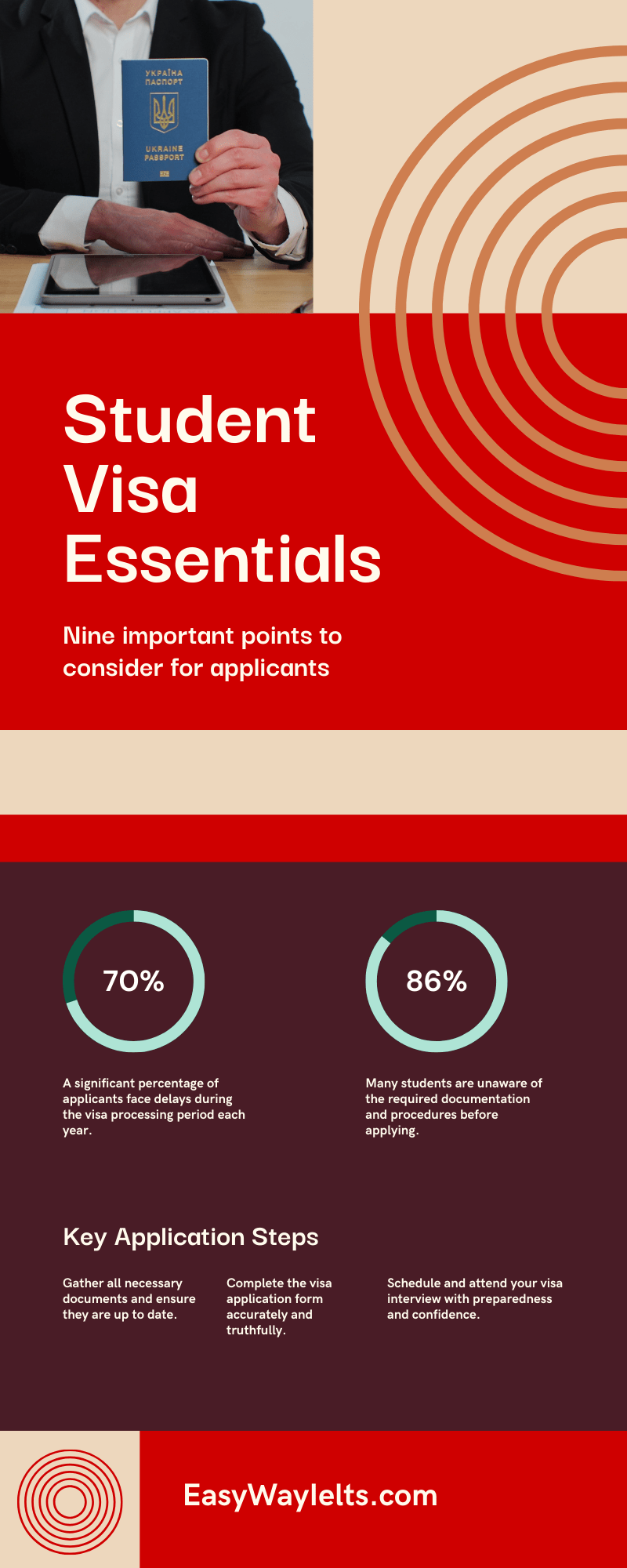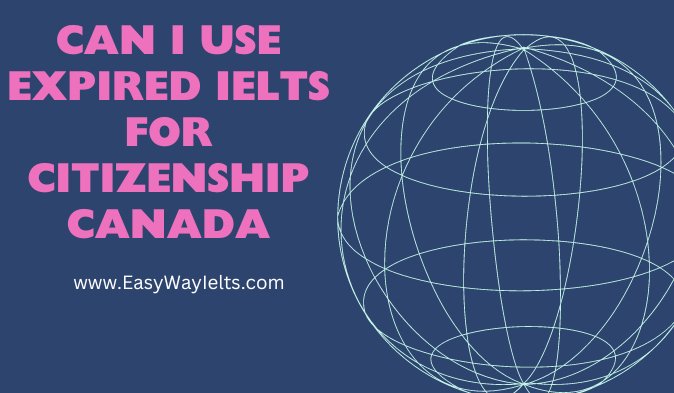Applying for a student visa is a crucial step for Indian students aspiring to study abroad, requiring meticulous planning and preparation. Understanding the visa process is essential for a seamless transition to international education.
From gathering essential documents to meeting financial requirements and excelling in visa interviews, the journey can be complex. However, with the right guidance from resources like easywayielts.com, you can effectively navigate these challenges.
This article outlines nine critical things to know before applying for a student visa from India, ensuring you’re well-prepared for success in countries like the U.S., Canada, the U.K., Australia, or beyond.
9 Important Things to Know Before Applying for a Student Visa
- Financial Requirements – Understand the minimum financial criteria for your destination country.
- Visa Officer Tips – Be ready to answer questions confidently during your visa interview.
- Document Checklist – Prepare essential documents like offer letters and identity proofs.
- Application Process – Know the online and offline steps for submitting your application.
- Proof of Funds – Provide valid evidence of financial capacity for tuition and living expenses.
- Bank Statement Verification – Ensure bank statements are legitimate and up-to-date.
- Visa Types – Identify the specific student visa required for your course and duration.
- Visa Application Steps – Follow each step carefully, from form submission to biometrics.
- Country-Specific Requirements – Research additional criteria unique to your destination country.
Fulfill Financial Requirements
Meeting financial requirements is a cornerstone of a successful student visa application. Each country sets a minimum amount to cover tuition, living expenses, and other costs, ensuring students can sustain themselves abroad.
According to easywayielts.com, in 2025, countries like Canada require proof of CAD 20,635 per year for living expenses (outside Quebec), while Australia mandates AUD 29,710. Acceptable evidence includes bank balances, fixed deposits, scholarships, or sponsorships.
Failing to meet these standards is a leading cause of visa rejections, so carefully review your destination’s cost of living and financial expectations.
Visa Officer Question-Answer Tips
Visa interviews are critical, with officers evaluating your intent, financial stability, and study plans. Prepare to discuss your course choice, funding sources, and post-study goals confidently. Easywayielts.com emphasizes practicing clear, honest responses that align with your application.
Avoid scripted answers, and instead, focus on demonstrating genuine academic interest and strong ties to India to assure officers of your intent to return. In 2025, officers increasingly prioritize clarity on career goals, so be ready to explain how your studies align with your future plans.
Document Checklist
A complete and organized document set is vital for a smooth visa process. Essential documents include:
- A valid passport (with at least 6 months’ validity beyond your stay).
- Offer letter from your university or institution.
- Proof of funds (bank statements, fixed deposits, or loan sanction letters).
- Academic transcripts and certificates.
- English proficiency test scores (e.g., IELTS, TOEFL).
- Medical certificates, if required.
- Visa application form and fee receipt.
Easywayielts.com advises verifying document authenticity and arranging them as per the visa office’s requirements to prevent delays or rejections.
Application Process
The visa application process varies by country but generally involves creating an account on the visa portal, completing forms, paying fees, and scheduling biometrics or interviews. Some countries require digital uploads, while others need physical document submissions.
Easywayielts.com notes that in 2025, digital platforms like Canada’s IRCC portal and Australia’s ImmiAccount have streamlined applications, but strict adherence to deadlines is crucial. Double-check instructions and track your application status to stay on top of the process.
Proof of Funds
Proof of funds demonstrates your ability to cover tuition and living costs. Acceptable documents include bank statements, loan approvals, sponsorship letters, or scholarship awards. Most countries require evidence for at least the first year of study.
Easywayielts.com highlights that in 2024, 65% of visa rejections were due to insufficient or unclear financial proof. Ensure funds are in your or your sponsor’s name, clearly traceable, and meet the specified thresholds for your destination.
Bank Statement Verification
Visa officers rigorously verify bank statements to confirm their authenticity. Use recent statements (within 3-6 months) showing consistent balances and clear transaction histories. If using a sponsor’s funds, include a sponsorship letter and proof of your relationship.
Easywayielts.com warns that falsified documents can lead to rejections or bans, with 2025 seeing increased scrutiny due to advanced verification systems. Keep statements updated and accessible throughout the process.

Visa Types
Each country offers specific student visas based on course type and duration. For example, the U.S. issues F-1 visas for academic programs and M-1 for vocational studies, while the U.K. offers the Student Route visa.
Easywayielts.com notes that in 2025, countries like Canada have updated their Student Direct Stream (SDS) program, offering faster processing for Indian students with strong academic and financial profiles. Research visa conditions, such as work limitations or renewal options, to plan effectively.
Visa Application Steps
The typical steps for applying for a student visa include:
- Research visa requirements for your destination country.
- Gather all required documents, including financial and academic proofs.
- Complete the visa application form (online or offline).
- Pay the visa fee and retain the receipt.
- Schedule and attend biometrics or interview appointments, if required.
- Submit your application and monitor its status.
- Respond promptly to requests for additional information.
Easywayielts.com recommends maintaining a checklist to ensure no step is overlooked, as errors can delay processing or lead to rejection.
Country-Specific Requirements
Each country has unique visa requirements. For instance, Canada requires a Guaranteed Investment Certificate (GIC) for SDS applicants, while the U.K. mandates a Tuberculosis test for Indian students.
Easywayielts.com reports that in 2025, Australia introduced stricter English proficiency requirements, increasing the minimum IELTS score to 6.5 for certain programs. Research your destination’s specific criteria, including health checks or additional certifications, to avoid surprises.
Conclusion
Securing a student visa is a crucial step toward studying abroad, requiring careful attention to financial documentation, specific country requirements, and relevant regulations. By understanding the process, preparing thoroughly, and presenting yourself confidently to visa officers, you can streamline your application.
Easywayielts.com emphasizes that in 2025, proactive preparation and transparency are crucial for avoiding common pitfalls, such as incomplete documents or insufficient funds.
A student visa is more than paperwork—it’s your gateway to a transformative academic journey. Stay organized, informed, and focused to turn your study abroad dreams into reality.
Frequently Asked Questions (FAQs)
Q1. How much bank balance is required for a student visa?
The required balance varies by country and institution, typically covering tuition and living expenses for at least one year. Easywayielts.com suggests checking specific guidelines, like CAD 20,635 for Canada or AUD 29,710 for Australia in 2025.
Q2. How to impress a visa officer?
Be confident, honest, and clear about your study and career plans. Easywayielts.com advises providing strong financial proof and demonstrating ties to India to assure officers of your intent to return.
Q3. What is the requirement for a student visa in India?
Foreign students need a valid passport, admission proof from an Indian institution, and financial documents. Easywayielts.com notes requirements vary by nationality and study purpose.
Q4. What are the 5 basic steps to apply for a visa?
Research requirements, gather documents, complete the application form, pay the fee, and submit the application. Easywayielts.com stresses tracking your application status diligently.
Q5. Can I show FD as proof of funds?
Yes, Fixed Deposits (FDs) are acceptable if in your name and sufficient to cover expenses. Easywayielts.com recommends including a bank certificate to validate the FD.
Q6. Do visa officers check bank statements?
Yes, officers verify statements for authenticity and sufficient funds. Easywayielts.com warns that falsified statements can lead to rejection or bans in 2025.
Q7. What are the 4 main types of visa?
The main types are Tourist, Student, Work, and Immigrant visas, as per easywayielts.com.
Q8. What are the 4 main steps to getting a visa?
Research requirements, gather documents, submit the application, and attend interviews if needed. Easywayielts.com advises meticulous preparation to avoid delays.



